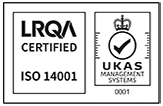
In the shadow of a global pandemic, Christmas 2020 will look different from Christmases that have gone before. While there may not be large parties to mark the festivities, an abundance of celebratory food will remain a core part of how many families come together – even if it’s in smaller numbers this year.
An environmental and social crisis
The overindulgences of Christmas pose a significant problem – the issue of waste. It’s not just food waste that’s a problem at Christmas. Waste is caused by unwanted gifts, unrecyclable cards and other seasonal excesses. It’s always been an environmental concern that puts a strain on our landfill capacity. But this year, in light of increasing poverty levels throughout the UK, it’s an even more significant social problem than ever before.
Thanks to high profile campaigns such as those led by footballer Marcus Rashford, a spotlight has been cast on the problem that some families simply can’t afford to eat. As such, food waste has become a significant national shame.
Don’t fall for discounts
To avoid having too much food in the house, be sensible about bulk buy discounts. While a ‘2 for 1’ deal might seem appealing, or too good to pass up, ask yourself whether you need it and whether it’s worth the saving – or will it simply be binned and contribute to food waste?
Maximise your storage space
With our freezers full to bursting, and fridge space at a premium, simply running out of room to store food safely can contribute to food waste. Planning ahead, reorganising your fridge and freezer and using up food before the big Christmas shop arrives can help. Being mindful and organised about use-by and best before dates (as well as understanding the difference) can help mean food is used sensibly.
Don’t overestimate what’s needed
Christmas hosts fretting about not having enough roast potatoes, or enough decadent side dishes to the turkey find themselves falling into the trap of providing too much food. Year-round there are easy ways to reduce food waste, but these simple rules apply even more at Christmas when we have more food in the house. Planning meals better can help both reduce what you’re spending on food and minimise waste. Use Love Food Hate Waste’s portion calculator to work out precisely what you need.
Maximise leftovers
Large turkey dinners with ample to go around can be justified with the idea that leftovers can be enjoyed the next day. If you’re going to buy and serve more than what people need to eat, then ensuring you’re using leftovers responsibly is crucial to minimising food waste. There are plenty of ideas for using up Christmas leftovers. Love Food Hate Waste has a handy tool to find recipes.
Try home composting
Food waste can’t be processed in household recycling, and it’s not suitable for skips. Most is destined for landfill. However, home composting is ideal for some types of food waste, including uncooked fruit and vegetable waste. It’s a process that decomposes the waste into nutrient-rich fertiliser for your garden. WRAP has advice if you want to try composting at home for the first time.
Support those that struggle
Taking simple steps to reduce your own food waste will help a collective national effort. But to help those in need this Christmas, you may wish to consider supporting these local charities:
- Worthing Foodbank is a Trussel Trust Foodbank run by Redeemer. They collect and distribute food items to thousands of people in Worthing and the surrounding area. Financial or food donations can be made.
- FareShare Sussex redistributes food industry surplus which would otherwise be wasted. They accept food and financial donations to provide food for vulnerable people across Sussex and Surrey.
To find out more about skip hire in West Sussex and our Energy from Waste facility, contact Rabbit. Reach us on 01903 762020 or email info@rabbitgroup.co.uk.




